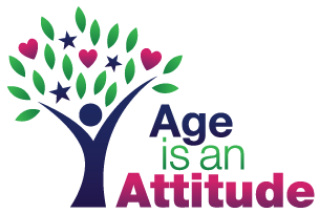Retirement at Age 100+? It's Coming!
Albrecht Durer’s portrait of his 63-year-old mother in 1514 (left) and Helen Mirren at 63 (right). Courtesy Wikemedia/Brenna/Jason Fraser via Flickr
I recently spoke at the 40th anniversary of our nation’s pension law, ERISA, commemorating the establishment of the pension insurer, the Pension Benefit Guaranty Corporation (PBGC). At that occasion, U.S. Secretary of Labor Thomas Perez led off the discussion by noting that the outlook for traditional pensions remains fraught, requiring tough choices to preserve the future of the American retirement system. In many ways, I agree.
But I must point out that we should not despair: in the 21st century many are aging far more vibrantly than in the past. In other words, the good news is that we’re living longer and, for the most part, healthier, than in the past. Both our mental and physical functioning in later life exceed that of our forefathers and foremothers. My own parents, born in 1916 and 1922, faced a life expectancy of around 45 at birth. Surviving to age 60 was rare in the old days, while today, age 80 is touted as “the new 60” and centenarians (age 100+) are our fastest growing age group.
“80 is the new 60 and centenarians (age 100+) are our fastest growing age group.”
At the same time, we must be alert to the reality that it’s now much more expensive to retire than it used to be. A baby born today could live to age 150 or beyond, a reality that will drastically alter your perspective about your own, as well as your children’s and grandchildren’s retirements. My mom and dad retired three decades ago with a secure defined-benefit pension and retiree medical insurance, reliable Social Security and Medicare benefits, and a house that had appreciated over time. They didn’t need to save a lot, nor did their savings need to stretch very far, given their secure income streams.
Today everything is different: Social Security and Medicare face deep problems, traditional pension are closing down, and interest rates on saving are pitiful. So what can we do to make aging more attractive?
“We must rethink retirement.”
Most importantly, we need to rethink retirement. For this, we’ll need to invest in skills and strength, so we can remain employed for much longer. Research suggests that people remain in better health when they delay retirement, since they remain better connected with friends and co-workers as well as remaining physically more active. Delaying retirement also means that your nest egg will keep growing, leaving you in better financial shape than if you start drawing down assets early.
The end of retirement is already prompting a global reconsideration of how we think about the life cycle. For economic growth and greater security, we’ll need to find new ways to work to 100+ while investing for the long haul in our health, mental faculties, friends, neighbors and society. Fortunately, with fewer younger workers around, employers will need to keep us on the job.
Olivia S. Mitchell is a professor of Business Economics and Public Policy at the Wharton School of the University of Pennsylvania where she focuses on pensions, household finance, retirement, and risk management. Tweet her @OS_MitchellAn edited version of this article first appeared on her blog http://on.wsj.com/1FqNQne

